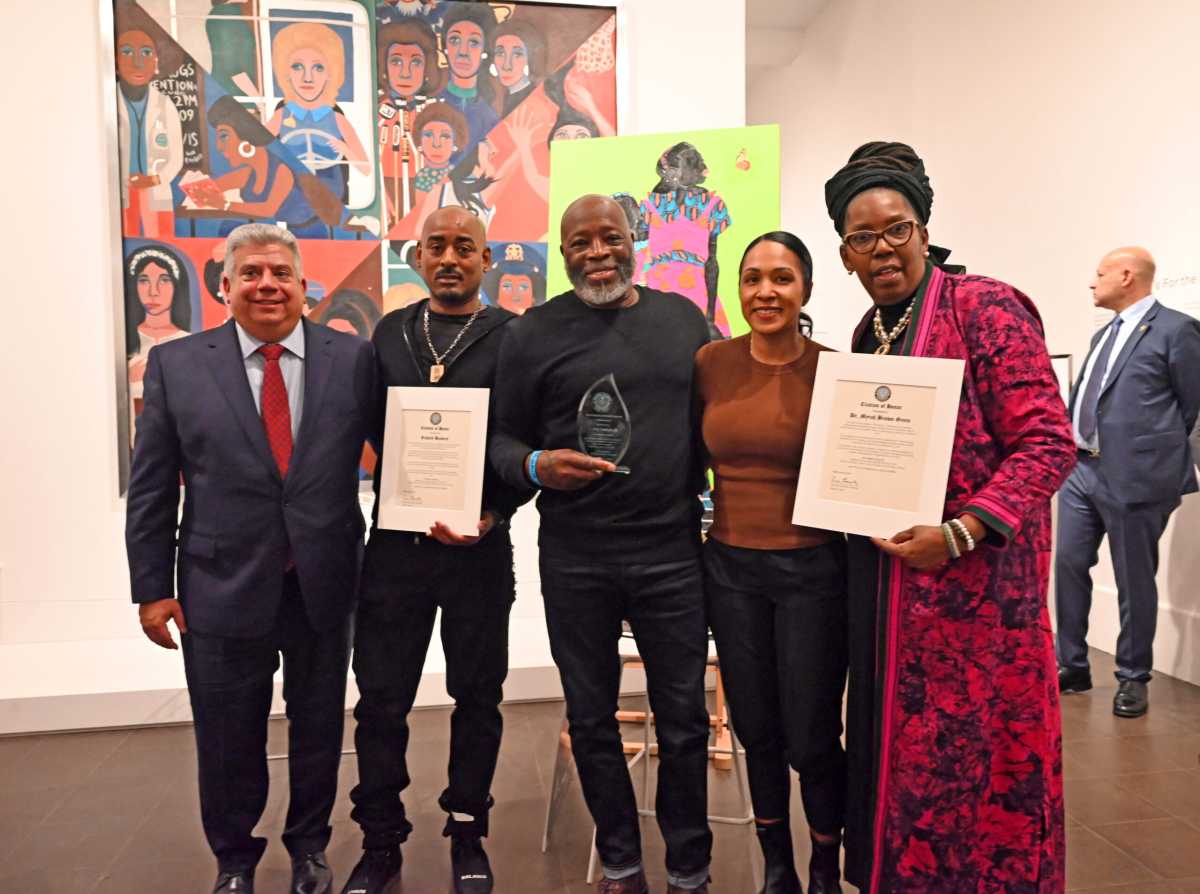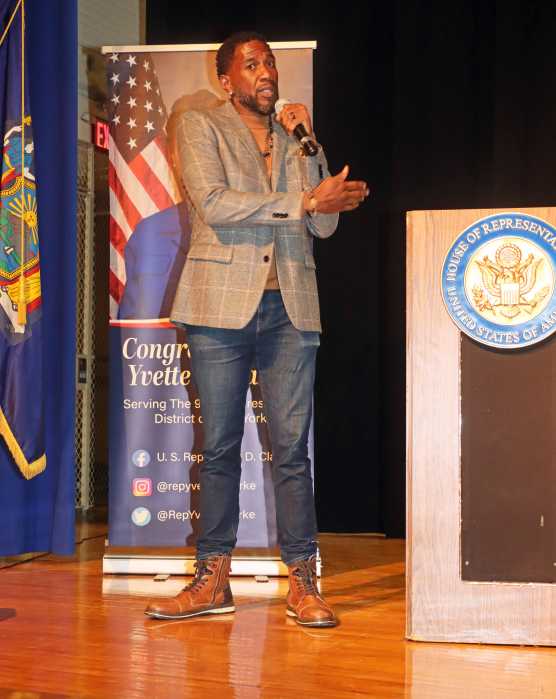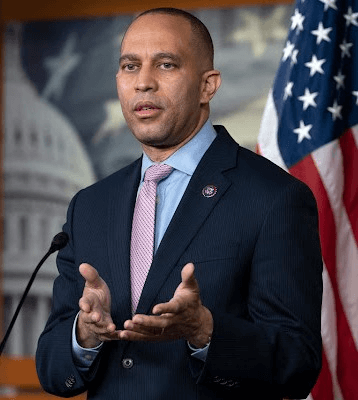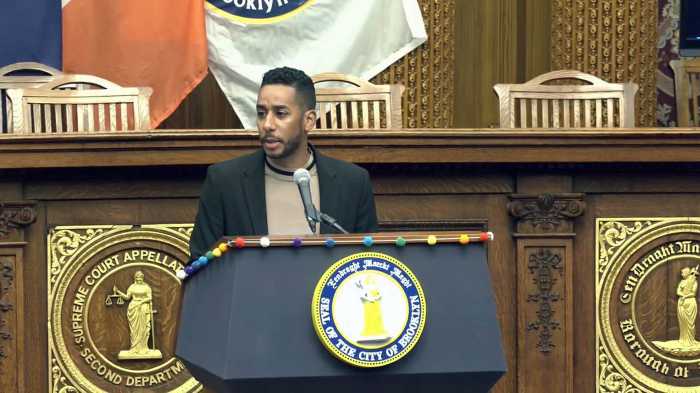The Brooklyn District Attorney’s Office on Saturday hosted its annual Black History Month celebration at the Brooklyn Museum with a discussion about art, history and social justice.
The packed event took place at the American Art Galley, featuring a conversation between artist Leroy Campbell and Dr. Myrah Brown-Green, a professor at Medgar Evers College and the founder of Voices of Art. The Master of Ceremonies was art gallery owner Richard Beavers.
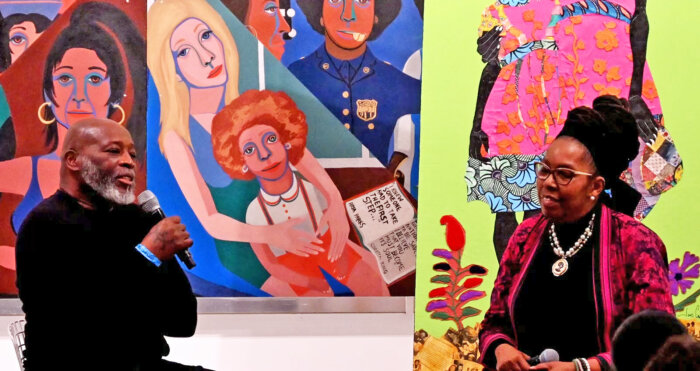
Throughout Black History Month, the Brooklyn District Attorney’s Office said it is highlighting influential African American figures in law, such as the late Ken Thompson, Brooklyn’s first Black District Attorney, who had championed equal justice.
“This year’s theme highlights the profound impact that Black Americans have had in the arts,” said Brooklyn District Attorney Eric Gonzalez in introducing the artists.
“Brooklyn in particular has been home to an array of remarkable Black artists whose talents have transcended boundaries and genres –from Lena Horne to Jay-Z, Jean-Michel Basquiat to Spike Lee.
“Throughout history, Black artists have used their talents to highlight injustice, address social issues, inspire change, and bring communities together,” he added.
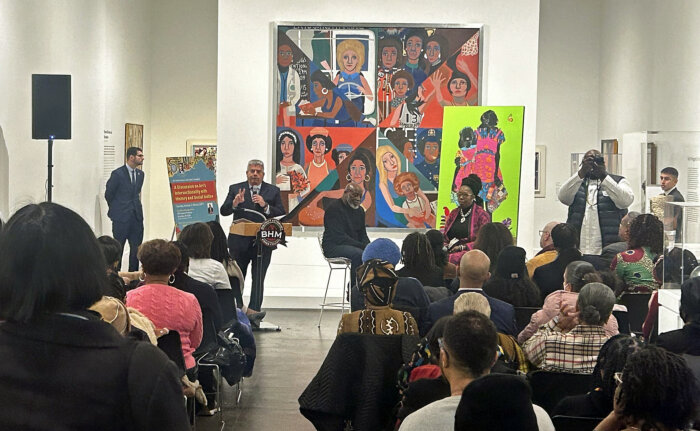
Gonzalez also noted the ongoing partnership his office has established with the Brooklyn Museum, which runs a successful alternative to incarceration program for those arrested for certain minor offenses.
“This is not just about avoiding prosecution; it’s about transformation,” he said. “It’s about how art can open doors to new perspectives, encourage self-reflection, and foster a sense of responsibility.”


